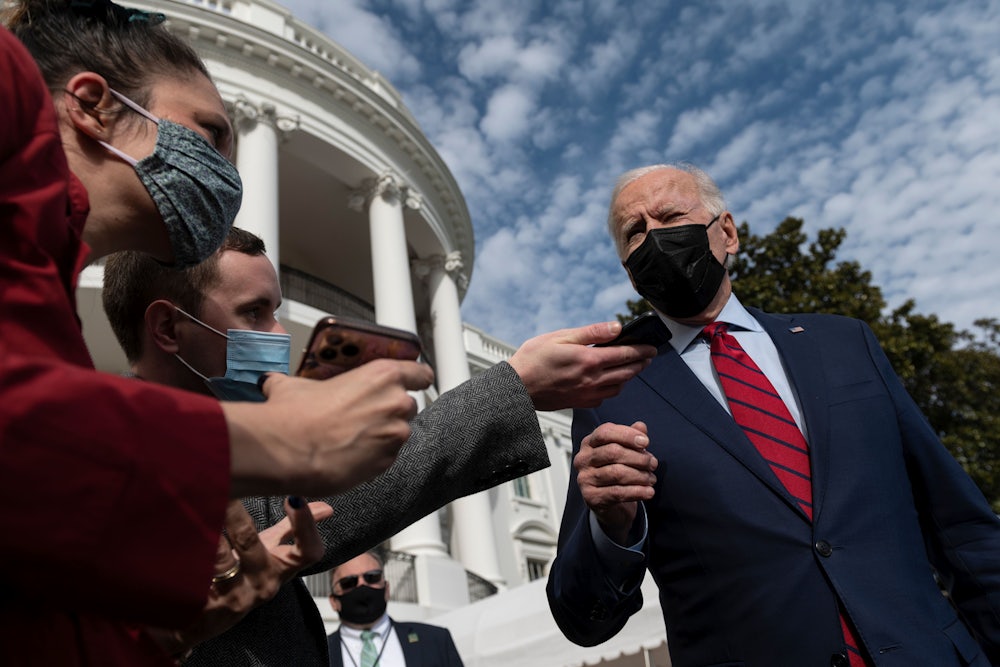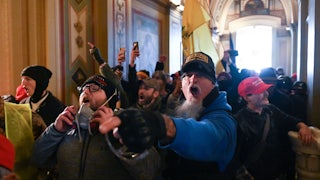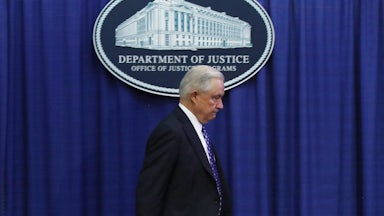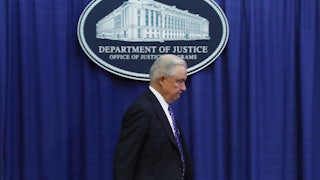President Donald Trump infamously labeled the press the “enemy of the people” and routinely suggested that negative stories about him were invented out of whole cloth by “nasty” reporters who were out to get him. But the extent of his administration’s assault on the press is only just coming into view.
Earlier this week, The New York Times reported that the Trump Justice Department had secretly seized the phone records of four of its journalists as part of a leaks investigation. Those records, which dated from 2017 but were obtained in 2020, were part of a separate probe into leaks—this one given the weed strain–like codename “Arctic Haze”—focusing on former FBI Director James Comey. The news followed hard on the heels of similar reports that revealed the Trump DOJ had also seized records from reporters at CNN and The Washington Post, which likely involved investigations into national security and intelligence intercepts relating to conversations between figures with ties to the Trump campaign and Russian intelligence officials, respectively.
President Joe Biden has condemned the seizure of media members’ phone records. At a press conference last month, Biden was asked if he would prevent his DOJ from taking similar actions against journalists. “Absolutely, positively—it’s wrong. It’s simply, simply wrong. I will not let that happen,” he replied. It’s still reasonable to be skeptical, as the administration’s commitment to press freedom has yet to be tested. Nevertheless, the administration shouldn’t get a free pass just because it treats reporters with dignity and doesn’t wage a bombastic and cavalier assault on basic reality. Higher standards are required.
As the Associated Press’s Eric Tucker wrote earlier this week, it’s unclear if the Biden DOJ will keep the president’s promise, as “Democratic and Republican administrations alike have relied on the tactic in an effort to track down leaks of classified information.” The Obama administration was notorious for using the Espionage Act to prosecute leaks. In 2013, the Obama Justice Department seized the records of an AP reporter after the news organization revealed a terror plot that had been broken up by the CIA. Not only did the Obama DOJ refuse to drop a Bush-era investigation into then–New York Times reporter James Risen, it escalated the matter. As Risen wrote in a prescient 2016 Times column, if Trump “decides as president to throw a whistle-blower in jail for trying to talk to a reporter, or gets the FBI to spy on a journalist, he will have one man to thank for bequeathing him such expansive power: Barack Obama.”
The Obama administration’s abuses of press freedom have largely been forgotten amid the Trump administration’s flamboyant full-scale war on truth. This was, of course, fought on many fronts: the constant stream of invective emerging from the president’s mouth and (now shuttered) Twitter feed; the constant lying and stonewalling from White House press secretaries and other administration officials; and the total disregard with which the administration treated basic facts. In 2018, the administration seized the phone and email records of Times reporter Ali Watkins going back two years. It’s possible—likely, even—that many more phone records were seized; we certainly only know a small bit about the extent of Trump’s war on the press. But as the Columbia Journalism Review’s Jon Allsop wrote last month, the “administration may have waged war on journalistic sources, but it didn’t subvert the conduct of prior administrations so much as escalate it.”
The question now is how the Biden administration will de-escalate it—or even if it really wants to do so. Biden’s description of these violations of the First Amendment as “deeply wrong” is a significant break from the recent past, in which the DOJ would use every tool available to it to go after leakers in the name of “national security.” But as with many civil liberties–defying trends in government, it’s rare for presidential administrations to renounce power that they were given. The Obama administration, moreover, hardly paid a political price for its war on the press, however shameful it was. It’s easy to be cynical and assume that there are those in the Biden administration making a similar calculation: that they can go after reporters and leakers without taking a hit.
This depressing conclusion is bolstered by just how low the bar has been set for the administration when it comes to press freedom. It has thus far given almost no specifics as to how it will provide more transparency. (Indeed, despite the Obama administration’s abysmal record on press freedom, Obama press secretary Josh Earnest declared it, in August 2016, “the most transparent White House in history.”) The administration has not set clear limits on surveilling journalists. It has, however, continued to push for the extradition and prosecution of Julian Assange.
If the Biden administration is serious about being more transparent, it can at least start by doing more about the recently disclosed Trump-era seizures of journalists’ records than merely casting a critical eye in his predecessor’s direction and making a wan promise to clear the lowest possible bar. We need to know, as Times editor Dean Baquet said in a statement, “why this action was taken and what steps are being taken to make certain it does not happen again in the future.” Only by making specific commitments to remedy these breaches of trust can Biden send a message to the rest of his administration that a higher standard has been set.








